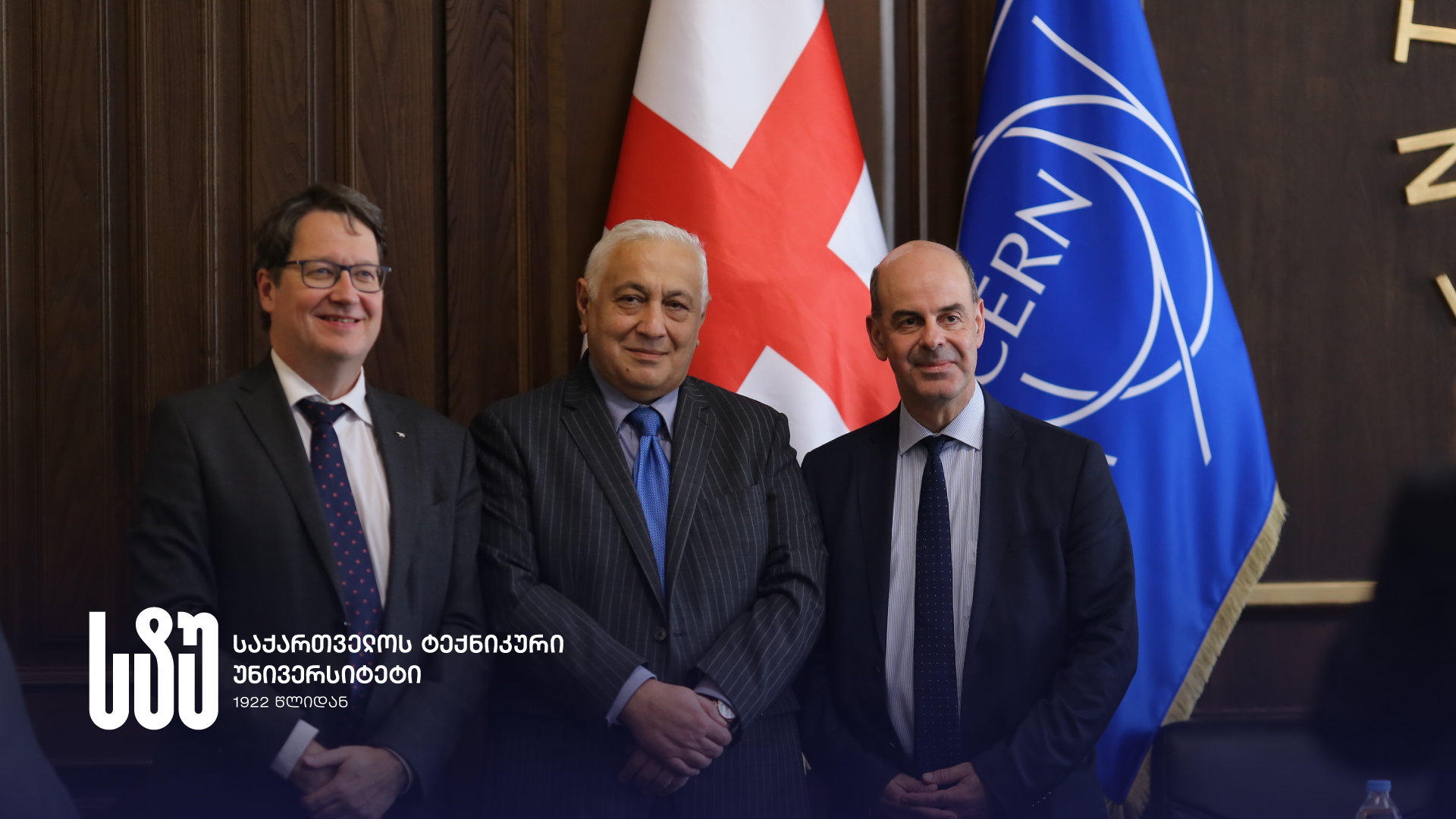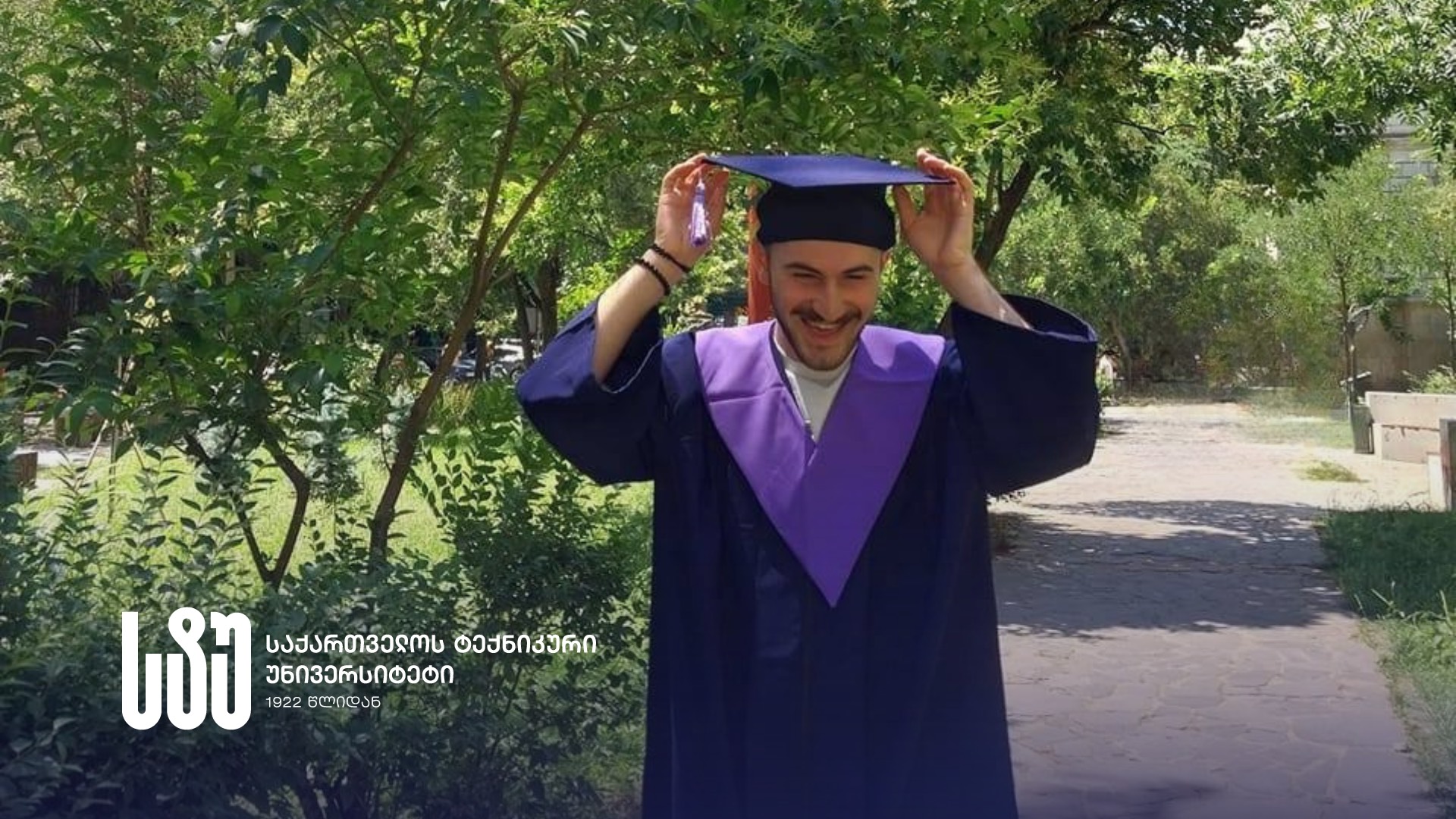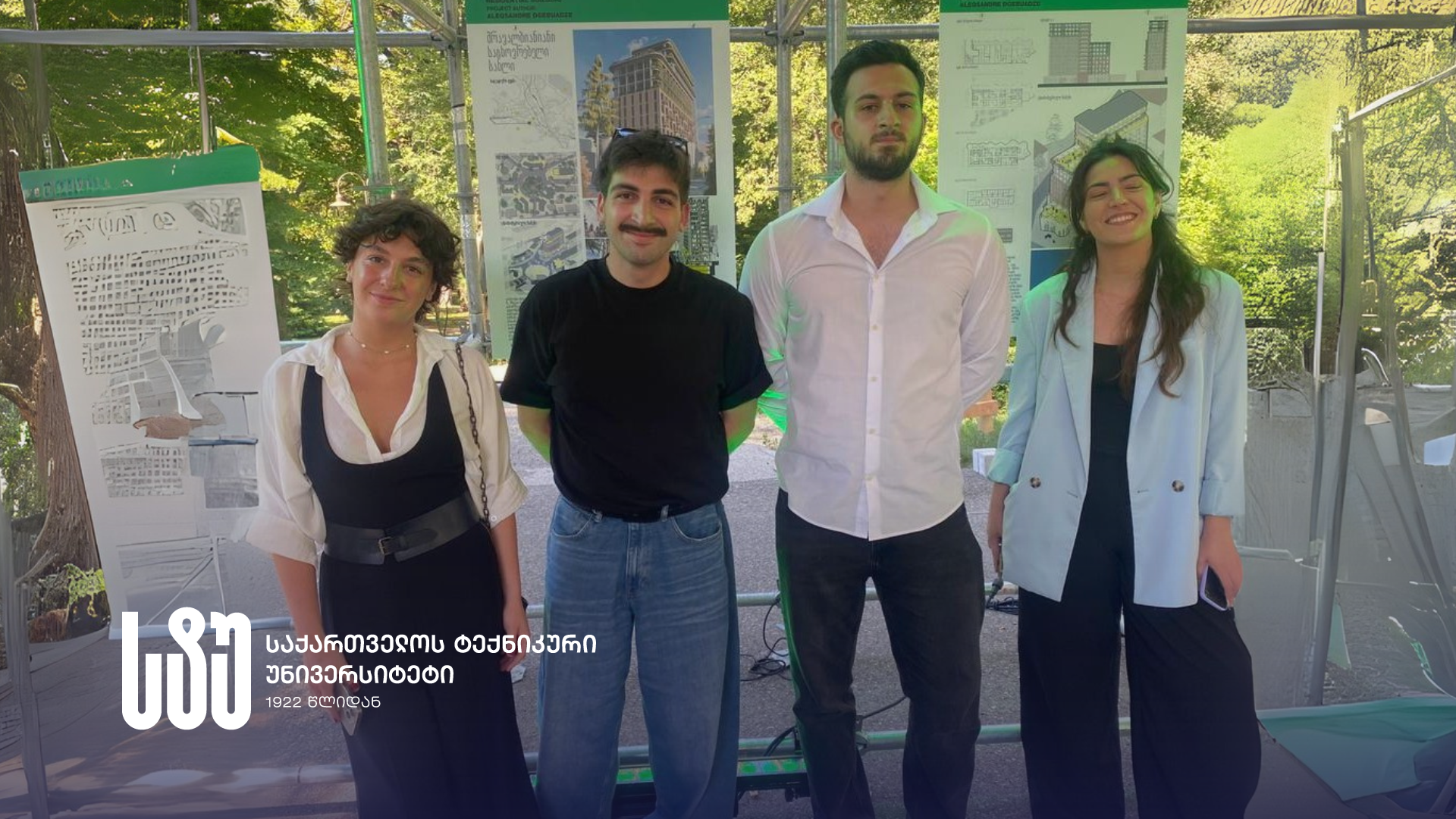According to the Memorandums Signed Between GTU and CERN, Georgian Scientists and Engineers Will Be Involved in the Implementation of the Physical Program of the Future Cyclic Collider
04-10-2024
“The existing scientific collaboration between the Georgian Technical University and the European Organization for Nuclear Research (CERN) will expand even more in the future”, said Academician David Gurgenidze, Rector of the Georgian Technical University, at the signing ceremony of two new, important memorandums of understanding between the Georgian Technical University and CERN.
The documents were signed by Academician David Gurgenidze, Rector of Georgian Technical University, and Emanuel Tsesmelis, Head of Relations with Non-Member and Associated Member States of the International Department of the European Organization for Nuclear Research (CERN), Oxford University Physics Department Professor.
Memorandum of Understanding #1 refers to the renewal of Phase 2 of the CMS experiment in CERN and the continuation of the participation of researchers from the Georgian Technical University in it, and Memorandum #2 involves the active engagement of university scientists and engineers in the implementation of the future circular collider (FCC – Future Circular Collider) at CERN.

According to David Gurgenidze, based on the signing of new memoranda of understanding with the European Organization for Nuclear Research, the participation of the research potential of the Georgian Technical University in the future scientific activities of CERN is significant for the university and its researchers, especially for young scientists and students. As the rector noted, the deepening of scientific collaboration with CERN is carried out with the support of the Government of Georgia and the Ministry of Education, Science, and Youth.
“Two memoranda were signed at the Georgian Technical University, which are very important for the development and progress of our country. Based on these documents, the scientists of the Georgian Technical University will participate in such global projects as the renewal of phase 2 of the CMS experiment at CERN and participation in the implementation of the future cyclic collider - FCC at CERN. We can safely call the second document the “memorandum of the century”, which is being signed for the first time in the region with the Georgian Technical University. The document envisages the implementation of the FCC’s physics program for the future 100-kilometer cyclic collider, which will begin immediately after the completion of the LHC’s physics program. Currently, in parallel with the realization of the LHC, important works are underway, including the unification of countries in the FCC collaboration and the creation of working groups; For the FCC, scientific research works are carried out in the direction of the accelerator and the latest type of detectors. A group of scientists and engineers from the Institute of Quantum Physics and Engineering Technologies of our university, led by the director of this institute, the representative of the Georgian government at CERN, Professor Zviad Tsamalaidze, are actively involved in all this work. They are working on creating a Technical Design Report (TDR) for the FCC program.
According to the second memorandum, the renewal of phase 2 of the CMS experiment envisages not only the renewal of the currently operating detectors but also the replacement of some of them with new ones. The new type of high-granularity universal calorimeter creation - HGCAL - is noteworthy and a priority in the upgrade program. It should be noted that until now, such a calorimeter has not been created in science, and we are happy that the engineers, scientists, and young researchers of the Georgian Technical University will make a special contribution in this direction.
Today is the most important day for the Georgian Technical University and our scientists. We are happy and proud that the existing scientific collaboration between the Georgian Technical University and CERN will further expand in the future. Today, for this very purpose, physicists from one of the world’s largest life science collaborations - the European Organization for Nuclear Research - are in our university. Along with this, for the first time in the post-Soviet space, the 35th Hegel International Congress, hosted by the Georgian Technical University, is being held in Georgia for the 5th day. In this great scientific forum, prominent world scientists participate and share leading ideas in philosophy with young people. As the ancient Greeks would say, the essence and knowledge of all mankind is physics and philosophy. Therefore, we sincerely believe that now, in our university is a celebration of science.
We thank the European Organization for Nuclear Research for the high appreciation of the intellectual abilities of the scientists and engineers of our university, and for the declared trust and friendship. We thank the Government of Georgia, Prime Minister Irakli Kobakhidze, and the Ministry of Education, Science, and Youth for their effective support in integrating Georgian universities into the international educational and scientific space. And finally, the implementation of all similar documents will help the young generation of scientists to achieve success in the worldwide arena”, said David Gurgenidze.
The ceremony of signing memorandums of understanding with CERN was attended by Georgian Technical University Vice-Rectors Tamar Tsereteli and Tamar Lominadze, President of the Supervisory Board of GTU Zurab Gudavadze, Senior Advisor for Relations with Non-Member and Associated Member States of the International Department of CERN, Professor Christoph Schafer, The director of the GTU Institute of Quantum Physics and Engineering Technologies, the leader of the CERN-LHC group and the representative of the Georgian government at CERN, Professor Zviad Tsamalaidze, deans of faculties, professors, and students.
The documents were signed by Academician David Gurgenidze, Rector of Georgian Technical University, and Emanuel Tsesmelis, Head of Relations with Non-Member and Associated Member States of the International Department of the European Organization for Nuclear Research (CERN), Oxford University Physics Department Professor.
Memorandum of Understanding #1 refers to the renewal of Phase 2 of the CMS experiment in CERN and the continuation of the participation of researchers from the Georgian Technical University in it, and Memorandum #2 involves the active engagement of university scientists and engineers in the implementation of the future circular collider (FCC – Future Circular Collider) at CERN.

According to David Gurgenidze, based on the signing of new memoranda of understanding with the European Organization for Nuclear Research, the participation of the research potential of the Georgian Technical University in the future scientific activities of CERN is significant for the university and its researchers, especially for young scientists and students. As the rector noted, the deepening of scientific collaboration with CERN is carried out with the support of the Government of Georgia and the Ministry of Education, Science, and Youth.
“Two memoranda were signed at the Georgian Technical University, which are very important for the development and progress of our country. Based on these documents, the scientists of the Georgian Technical University will participate in such global projects as the renewal of phase 2 of the CMS experiment at CERN and participation in the implementation of the future cyclic collider - FCC at CERN. We can safely call the second document the “memorandum of the century”, which is being signed for the first time in the region with the Georgian Technical University. The document envisages the implementation of the FCC’s physics program for the future 100-kilometer cyclic collider, which will begin immediately after the completion of the LHC’s physics program. Currently, in parallel with the realization of the LHC, important works are underway, including the unification of countries in the FCC collaboration and the creation of working groups; For the FCC, scientific research works are carried out in the direction of the accelerator and the latest type of detectors. A group of scientists and engineers from the Institute of Quantum Physics and Engineering Technologies of our university, led by the director of this institute, the representative of the Georgian government at CERN, Professor Zviad Tsamalaidze, are actively involved in all this work. They are working on creating a Technical Design Report (TDR) for the FCC program.
According to the second memorandum, the renewal of phase 2 of the CMS experiment envisages not only the renewal of the currently operating detectors but also the replacement of some of them with new ones. The new type of high-granularity universal calorimeter creation - HGCAL - is noteworthy and a priority in the upgrade program. It should be noted that until now, such a calorimeter has not been created in science, and we are happy that the engineers, scientists, and young researchers of the Georgian Technical University will make a special contribution in this direction.
Today is the most important day for the Georgian Technical University and our scientists. We are happy and proud that the existing scientific collaboration between the Georgian Technical University and CERN will further expand in the future. Today, for this very purpose, physicists from one of the world’s largest life science collaborations - the European Organization for Nuclear Research - are in our university. Along with this, for the first time in the post-Soviet space, the 35th Hegel International Congress, hosted by the Georgian Technical University, is being held in Georgia for the 5th day. In this great scientific forum, prominent world scientists participate and share leading ideas in philosophy with young people. As the ancient Greeks would say, the essence and knowledge of all mankind is physics and philosophy. Therefore, we sincerely believe that now, in our university is a celebration of science.
We thank the European Organization for Nuclear Research for the high appreciation of the intellectual abilities of the scientists and engineers of our university, and for the declared trust and friendship. We thank the Government of Georgia, Prime Minister Irakli Kobakhidze, and the Ministry of Education, Science, and Youth for their effective support in integrating Georgian universities into the international educational and scientific space. And finally, the implementation of all similar documents will help the young generation of scientists to achieve success in the worldwide arena”, said David Gurgenidze.
The ceremony of signing memorandums of understanding with CERN was attended by Georgian Technical University Vice-Rectors Tamar Tsereteli and Tamar Lominadze, President of the Supervisory Board of GTU Zurab Gudavadze, Senior Advisor for Relations with Non-Member and Associated Member States of the International Department of CERN, Professor Christoph Schafer, The director of the GTU Institute of Quantum Physics and Engineering Technologies, the leader of the CERN-LHC group and the representative of the Georgian government at CERN, Professor Zviad Tsamalaidze, deans of faculties, professors, and students.

